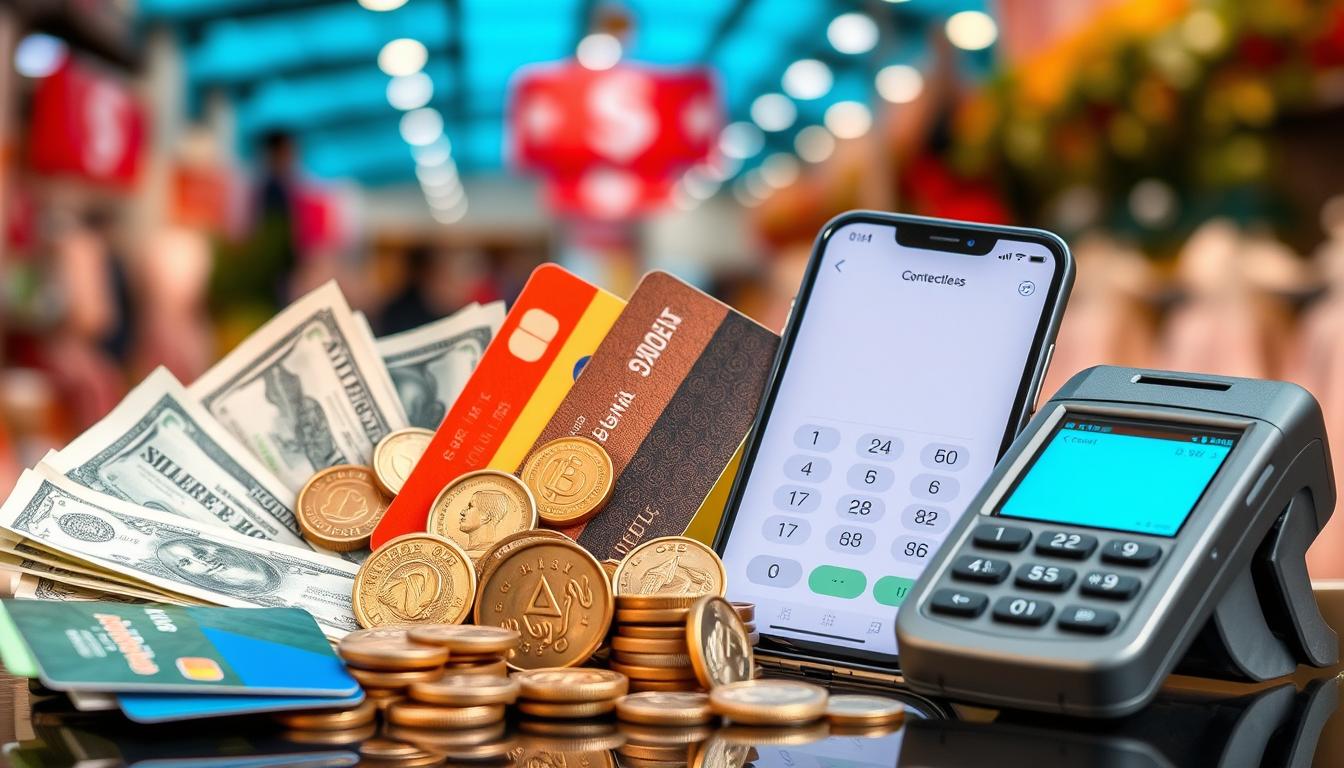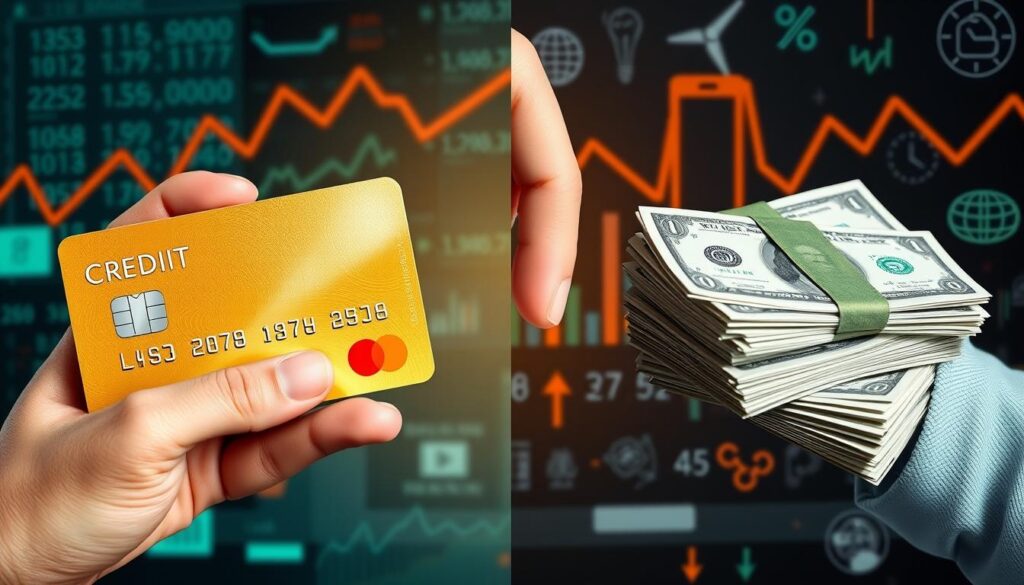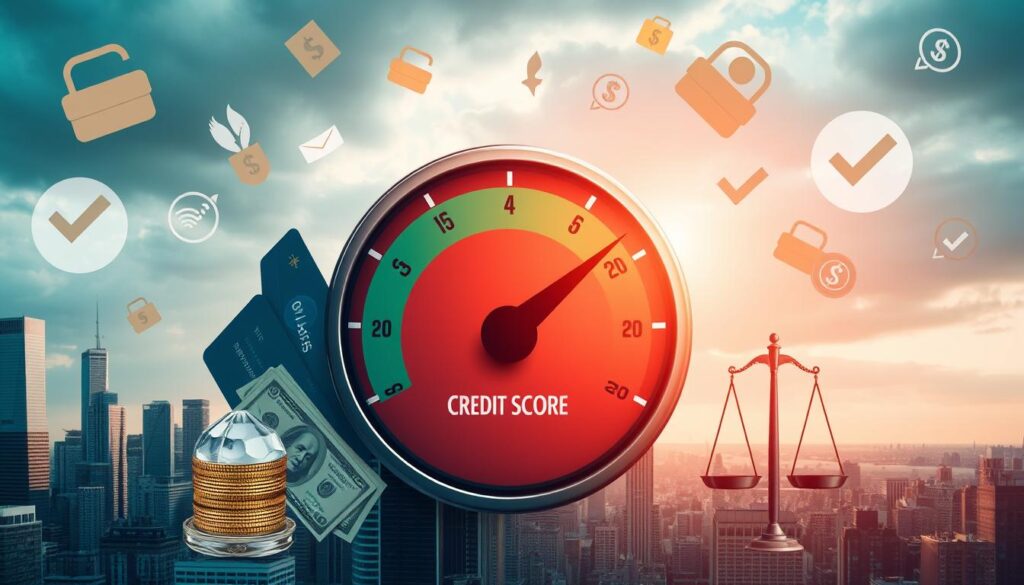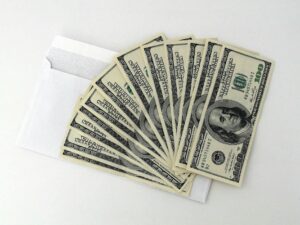Cash or Credit? How to Choose the Best Payment Strategy
Discover the secrets of savvy spending with our guide on “Cash or Credit? How to Choose the Best Payment Strategy” tailored for smart financial decisions.

In today’s fast world, picking the right payment methods is key to good personal finance. You might like cash or credit cards better. It’s important to match your payment plan with your money goals and life.
This article will look at the good and bad of each choice. We’ll help you make savvy spending and smart financial decisions.
Key Takeaways
- Understand the advantages and disadvantages of cash payments.
- Learn how credit cards can help build your credit score.
- Discover how to balance different payment methods for optimal financial health.
- Identify the impact of interest rates and fees on your budget.
- Explore strategies for managing debt effectively when using credit cards.
- Review the significance of credit scores in your payment decisions.
Understanding Cash Payments
Cash payments are key in personal finance. They have good points and bad points. Knowing these can help you budget better and spend wisely.
Advantages of Paying with Cash
One big plus of cash is you can only spend what you have. This makes you think more about your money. Also, cash helps you avoid debt because you can’t spend more than you have.
- Avoiding Debt: Cash doesn’t lead to borrowing, so you can’t get into debt.
- Spending Control: Handling cash makes you more aware of how much you’re spending.
- No Interest Fees: Cash means no extra fees like credit cards have.
Disadvantages of Using Cash
But, cash has its downsides too. It can be lost or stolen, which is a big worry. Also, it’s hard to keep track of how much you spend because there’s no digital record.
- Security Risks: Cash can get lost or stolen, especially if it’s a lot.
- Tracking Difficulty: Without digital records, it’s tough to see where your money goes.
- Limited Convenience: Cash isn’t as easy to use in today’s digital world.
It’s important to know both sides of cash payments. This helps you make smart money choices. By understanding how cash affects your spending, you can manage your money better and reach your goals.
| Advantages of Cash Payments | Disadvantages of Cash Payments |
|---|---|
| Immediate control over spending | Risk of loss or theft |
| Avoids debt accumulation | Difficult to track spending |
| No interest fees | Less convenient for online transactions |
The Benefits of Credit Card Payments
Credit card payments are more than just a way to buy things. They help you manage money better. They also improve your credit scores and offer rewards.
Building Credit Scores
Using credit cards wisely can boost your credit scores. Paying on time and keeping balances low is key. This helps you get better loan rates and more financial opportunities.
Rewards and Cashback Programs
Credit cards have rewards like cashback and travel points. These rewards make your daily spending more valuable. Choose a card that fits your spending to get the most benefits.
Comparing Cash vs Credit: Financial Management Perspectives
Choosing between cash and credit is key in managing money. Each option has its own benefits. Knowing how they fit into your budget and spending can help you stay financially stable.
Impact on Budgeting Strategies
Using cash or credit changes how you budget. With cash, you can stick to your budget better. You see the money go away, which helps you spend wisely.
Credit cards, however, make tracking easier. They give detailed statements and spending history. But, they can also lead to spending too much if not watched closely.
Effect on Spending Habits
How you spend money changes with cash or credit. Cash makes you think before buying. You see your money go, which helps you buy smarter.
Credit cards, though, can make you spend more. They let you buy more and pay later. But, this can hurt your finances in the long run if not managed right.
Interest Rates and Fees: What to Watch Out For
When you use credit cards a lot, it’s key to keep an eye on interest rates and credit card fees. These can really affect your money if you don’t handle them right.
High interest rates can add up fast if you don’t pay off your card. Good debt management is very important. Without a plan, you might pay more in interest than what you bought.
Here’s a quick overview of what to watch out for:
- APR (Annual Percentage Rate): This is the interest rate you pay each year on any balance. A higher APR means more interest.
- Late Payment Fees: If you miss a payment, you’ll get charged extra. This can make your debt bigger.
- Annual Fees: Some cards have a yearly fee just for having the card. Make sure the benefits are worth the cost.
Knowing how interest rates and credit card fees affect your money is crucial for managing debt well. Here’s a comparison to help you see the impact:
| Factor | Description | Effect on Debt |
|---|---|---|
| APR | Annual rate charged for borrowing | Increases total cost if balance is carried |
| Late Payment Fees | Charged when payments are not made on time | Can lead to additional debt and higher interest rates |
| Annual Fees | Yearly fee for card ownership | Adds extra cost regardless of usage |
How to Optimize Your Payment Strategy
Today, having a good payment plan is key to staying financially healthy. Mixing cash and credit can help you manage your money better. It also helps you make smart choices for your future.
Balancing Cash and Credit
Balancing cash and credit is important. Cash helps you avoid debt and interest. Credit, on the other hand, can give you rewards and improve your credit score.
A good mix is using credit for big purchases with rewards. Use cash for daily needs to keep your spending in check.
Tips for Smart Financial Decisions
Smart money choices are vital for reaching your long-term goals. Here are some tips:
- Set a Budget: Make a clear budget for each month. Sort your expenses into categories. This helps you see where your money goes and avoid overspending.
- Use Rewards Wisely: Use credit card rewards and cashback. But only for things you’d buy anyway. Don’t spend more just to get rewards.
- Automate Payments: Set up automatic payments for bills. This keeps your credit score high and avoids late fees. It works for both cash and credit.
- Regularly Monitor Statements: Check your statements often for any wrong charges or unauthorized use. Quick action keeps your money safe.
- Emergency Fund: Keep an emergency fund for unexpected costs. This way, you won’t have to use credit and avoid debt.
Cash or Credit? How to Choose the Best Payment Strategy
When picking a payment method, knowing your money situation is key. Cash or credit, each has its own good points. It’s smart to think about these carefully.
Deciding between cash and credit depends on a few things:
- How well you handle debt
- If you like rewards and cashback
- Your spending habits

For those who want to control their money, cash is a good choice. It keeps spending in check. On the other hand, if you can use credit wisely, you might get rewards and improve your credit score.
Here’s a quick look to help you decide:
| Factor | Cash | Credit |
|---|---|---|
| Budget Control | High | Medium |
| Rewards | None | High |
| Impact on Credit Score | None | Positive (if managed well) |
| Convenience | Low | High |
The best plan is to use both cash and credit. This way, you get the control of cash and the benefits of credit. This mix helps you spend wisely and improves your financial health.
Managing Debt When Using Credit Cards
Managing debt well is key when using credit cards. Smart strategies can help you avoid debt and keep your finances healthy. This part will cover how to avoid debt and why minimum payments matter.
Strategies for Avoiding Debt
To avoid debt, you need to be proactive with your credit cards. Here are some important tips:
- Create a Budget: Make a monthly budget to watch your spending and avoid overspending.
- Limit Credit Card Usage: Use your card only for things you really need, not for buying on impulse.
- Pay More Than the Minimum Payment: Try to pay off your whole balance each month. Or pay as much as you can to cut down on interest.
- Monitor Your Spending: Check your credit card statements often. This helps you see where your money is going and spot any unauthorized charges.
Understanding Minimum Payments
Minimum payments are the least you can pay each month to keep your account okay. Making these payments helps avoid late fees. But, it’s good to know the downsides:
- Extended Debt Duration: Just paying the minimum means it takes longer to pay off your debt. This can lead to more time in debt.
- Increased Interest Costs: If you only pay the minimum, you’ll end up paying more in interest. This makes the total amount you owe go up.
- Impact on Credit Score: Making minimum payments can keep your credit score okay. But, having high balances compared to your limit can hurt your score.
Knowing how to use your credit cards and avoiding debt helps you stay financially stable. This way, you can reach your financial goals.
The Role of Credit Scores in Payment Decisions
Credit scores are very important for your money health. They help decide if you can get loans or credit cards. A good score means better deals, but a bad score limits you.
It’s key to watch your scores and see how they affect your money. This helps you stay financially healthy.
Here’s how credit scores affect your money choices:
- Interest Rates: Good scores mean lower interest rates. This makes loans cheaper.
- Credit Limits: High scores lead to bigger credit limits. This gives you more freedom with money.
- Approval Chances: A good score means you’re more likely to get credit cards or loans.
Pay on time and handle your credit well. This keeps or boosts your scores. It helps your money now and in the future.

Watching and managing your scores makes you more financially credible. This helps you make better money choices.
Budgeting Strategies for Different Payment Methods
Creating a good budget means knowing the difference between cash and credit. Using both wisely helps you control your money better. This part talks about making a balanced budget and keeping track of your spending.
Creating a Balanced Budget
Start by sorting your expenses into groups. Put a part of your money aside for things like rent, bills, and saving. Then, plan for things you can change like food, fun, and travel.
For example, you might:
- Use 50% of your income for basics (home, food)
- Put 30% into things you want (eating out, hobbies)
- Save 20% for future and paying off debt
Tracking Expenses
It’s key to keep an eye on what you spend. Use apps, spreadsheets, or notebooks to log your daily buys. This way, you see where your money goes and can save more.
Using these budgeting strategies every day makes your finances clearer. It lets you make smart choices. By watching your spending and keeping a balanced budget, you can grow your money.
Conclusion
We’ve talked about cash or credit? how to choose the best payment strategy. Cash is simple and helps avoid debt. It’s great for budgeting and controlling spending. But, it doesn’t help build credit scores or earn rewards like credit cards do.
Credit cards offer rewards and cashback. They can improve your financial health if used wisely. This is a big plus.
Looking at cash vs credit shows how each affects budgeting and spending. Knowing about interest rates and fees is key. This helps you make smart choices for your payment strategy.
Using both cash and credit wisely is smart. It helps make financial decisions that fit your needs and goals. This way, you can use both to your advantage.
Our last thoughts are about choosing between cash or credit. It’s important to think about your financial habits and goals. By managing debt well and tracking expenses, you can balance your budget with your lifestyle.
The best payment strategy supports your financial health. It should also change as your needs do. This way, you can get the most from both cash and credit. Learn to leverage your credit with a better credit score and you won’t need as much cash.







